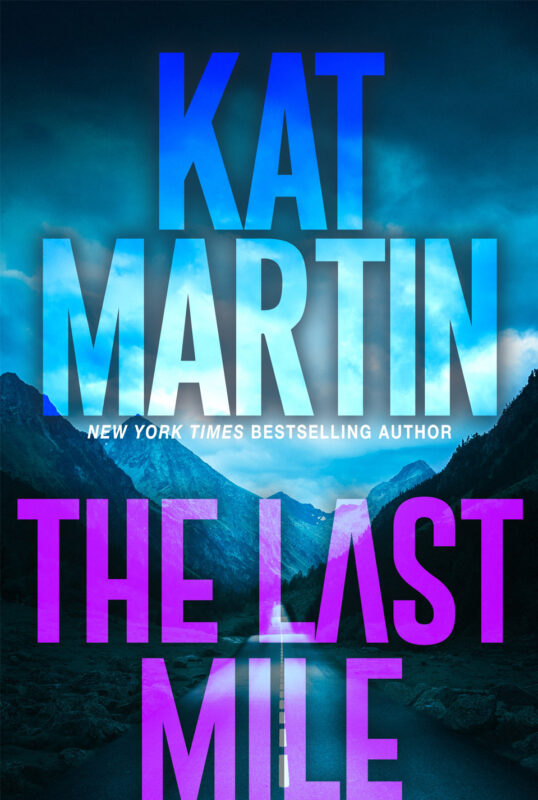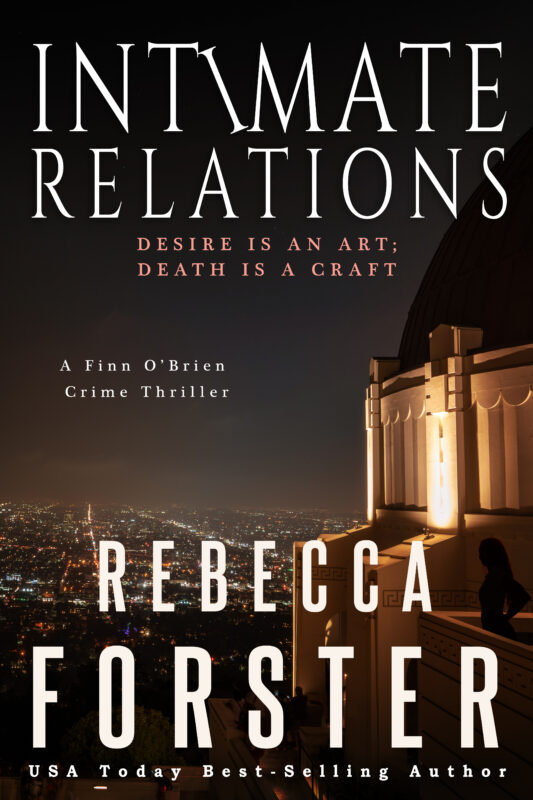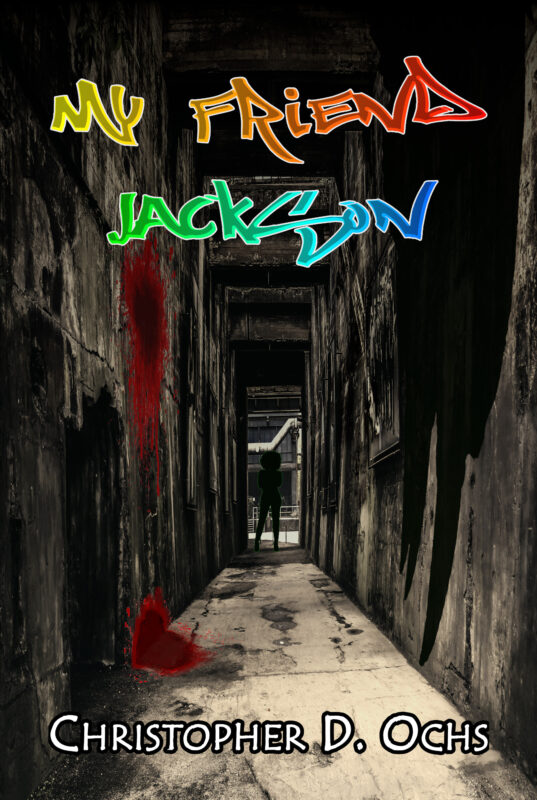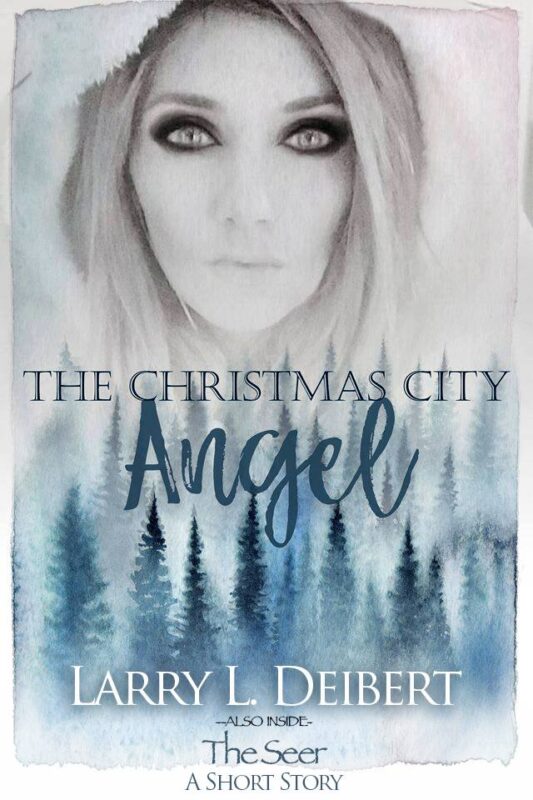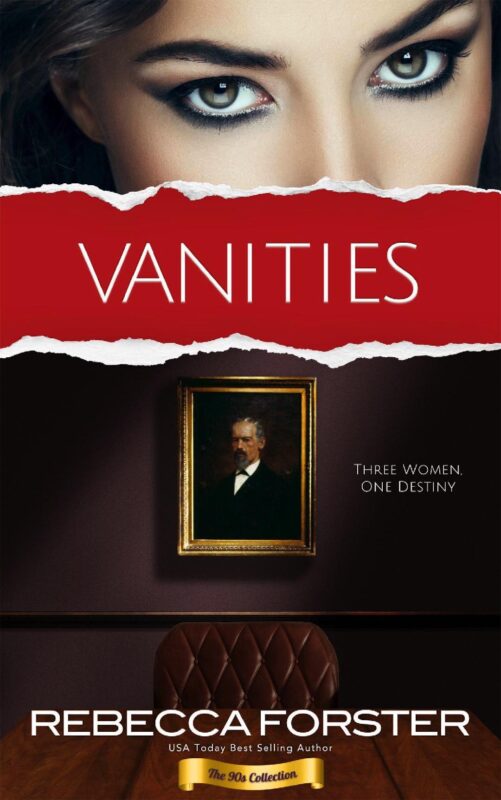Self-brainwashing…
June 24, 2017 by Isabel Swift in category From Isabel Swift tagged as brainwashing, Isabel Swift, noise, silence
I know, most of America drives around in their own cars, but those city dwellers who find themselves in the back seat of a taxi or other hired conveyance may sympathize with the situation. Many people that drive for a living have the radio on: talk radio, music, endless news, NPR. I have to confess, I am a big advocate for silence, and feel there should be a bi-partisan movement for the right to not have to listen to stuff (on airplanes, in elevators, in malls, etc.).
Sure, I could get (and indeed have) earphones. But I don’t want to block out the world, I want to hear it, just not endless marketing jabber or musak or whatever. But I am particularly unhappy with having to listen to endless news or much of talk radio. There are a few talk radio stations whose goal is to be entertaining or informative. But most lure their listeners in with conflict, outrage, fear, danger, scary information, etc. like a fish with a dangler lure….

These kinds of shows—TV, radio, whatever—wind listener’s clocks, pull their chain, and give them some frisson of energy, hate, fear, anger, which seems to be far more addictive and universal (clearly part of one’s “lizard brain“) than a feeling of peace, happiness, learning or engagement. It exhausts me to listen to the streams of exhaust! And I don’t have adequate shields to effectively block out noise. Yes, I freely confess, I can’t pack with the TV on. It’s just too distracting.
Propaganda works if you hear information over and over again, it wears away at your critical faculty (if you have one). It’s convincing, even it it’s patently untrue and utterly ridiculous. If you see it, hear it, read it, talk about it it gets truthified through endless repetition. So I now not only ask the drivers to turn off the radio, but tell them to stop listening to this endless, depressing stream of fairly useless information. It isn’t good for their outlook on life.
It’s all a creepy, voluntary self-brainwashing.
I now feel much more charitable towards endless sports! But really, they should be reading romances….
0 0 Read moreThe “R” Word… by Isabel Swift
April 24, 2017 by Isabel Swift in category From Isabel Swift tagged as history, romance I thought I’d share a talk I gave on “The Substance of Romance” for the University of Pennsylvania Humanities Forum almost fifteen years ago (October 17th 2002)! I am indebted to Anne Maxwell/Elizabeth Lowell for her ideas included in a talk she gave at a Novelists Inc. conference many years ago. I don’t have the dates, but do know I have internalized her insights on literature/popular fiction and incorporate them here. Hope you enjoy! Isabel Swift
I thought I’d share a talk I gave on “The Substance of Romance” for the University of Pennsylvania Humanities Forum almost fifteen years ago (October 17th 2002)! I am indebted to Anne Maxwell/Elizabeth Lowell for her ideas included in a talk she gave at a Novelists Inc. conference many years ago. I don’t have the dates, but do know I have internalized her insights on literature/popular fiction and incorporate them here. Hope you enjoy! Isabel Swift
The Substance of Romance
I love reading romances. I love reading what might be termed “literary” romances. I love reading romances that are part of what would be defined as “popular fiction.”
Today I will be taking you through: a definition of terms; a brief historical framework of the genre; the wide ranging, broad and successful aspect of romances; criticisms the genre faces. But I plan mostly to focus on the remarkable timeless appeal of the romance genre, how it crosses boundaries of time & culture, how it has changed and continues to change as it continues to grow and thrive
So what is a romance? It is a work of fiction where the focus of the story is on the developing relationship between two people. The story’s climax resolves it and delivers a sense of emotional “justice” and satisfaction.
As with any genre, there must be essential narrative elements, or it’s not a romance: The center of the story is a love story with an emotionally satisfying ending. Archetypic narrative elements broadly include 5 things: Meeting; Attraction; Barrier; Destruction of barrier; Declaration.
In a tale well told, the destruction of that barrier frees the characters from their constraints. It empowers them to choose; it enables them to act, and the reader rejoices.
The genre is a diverse one, with many sub-genres, from contemporary to historical romances: Sexy, Sweet, Suspense, Paranormal, Humorous, Fantasy, Inspirational, Western, Regency…the possibilities are endless and endless possibilities have been explored. Romances have a universal and timeless appeal.
There is no unanimously agreed upon “first” romance, though romantic texts have been cited as early as the 4th Century B.C. The crusades, Arabian fables & chivalry all incorporate elements of romance. But in 1740 Samuel Richardson’s PAMELA delivered a clear romance novel and a best-selling one at that (interestingly beloved of both men & women at the time). In Clara Reeve’s Progress of Romance (1785) she notes that: Novels were seen as “pictures of real life and manners, and of the times in which they were written.” Whereas romances used “lofty and elevated language, describing what has never happened, nor is likely to.”
Some of what we see now as “overblown” prose clearly springs from this historical vision of romance. Henry Fielding (1707-1754) an 18th Century kind of guy who wrote a take-off on PAMELA— SHAMELA scorned romances. Sir Walter Scott (1771-1832) a 19th Century type of guy and a “romantic” scorned a novelist like Jane Austen (1775-1817). But both Scott and Austen wrote romances —one wrote larger than life stories, drawn on a sweeping canvas; one more intimate tales, realistic and of the times.
Romances, in general, represent over half adult popular mass market fiction, depending on your definition of “romance.” It was a 1.5 billion dollar industry last year (2001), with more than 2,000 titles released. 50 million women in North America read romances. Clearly romances are a vital element of our lives and in our literature. The stories cross cultures. They cross centuries. They continue to have phenomenal appeal.
While I want to focus on exploring that appeal, I did want to respond to some of my favorite criticisms of the genre: I must note that almost all criticisms are voiced by people who declare, without shame, I might add, that they’ve never actually read any romances. Interestingly, they do not see this fact as a disqualification for an opinion!
There’s the “pornography” one, which I can’t imagine anyone who has ever read a romance lending any credence to. The essence of a romance is about the unique rightness of uniting these particular two people and the challenges they face in creating a good partnership. The stories are about both the emotional and physical connection, body and soul. Some romances are certainly sexy, but the physical is always in the context of a connection between two unique people.
Romances are sometimes faulted for having romantic conventions and being part of a genre. Like Homer (and I feel that one could convincing argue that the Odyssey is a quintessential romance) and the Homeric epithet, these familiar elements are ways the teller of the tale communicates to her reader that she is in a genre, a world both familiar and new. While humans can enjoy change and uncertainty, many also enjoy elements in their life that can be depended on and are relaxing. The issue of “sameness” is the point, not the problem. If we turned some of these principals to, say, sports, I think we’d find some interesting commonalties and insights.
162 baseball games every year—year after year. Football, basketball, hockey, all are much the same. Same number of players, same positions. Now isn’t that boring? Don’t guys get tired of it? Don’t they wish everyone just switched places every inning or so? Or we added a few players? Or took some away? Just think of what the response would be to that. Outrageous! Absurd! It wouldn’t be baseball! (or football, or whatever). By the same token, a romance without the essential elements would not be a romance, it would not deliver the key elements that inspired the reader to select that genre and that story to begin with.
People decide to watch a basketball game because they want to watch a certain number of players of a particular sex play in a specific setting under a clear set of rules. And even within basketball, viewers are highly specific, many preferring to watch only professional or college or women’s basketball (or whatever). The rules are different; it’s a more exciting game, or less political (or whatever). Now that seems to me to be a fairly rigidly codified entertainment viewing experience, doesn’t it? Yet those same viewers express surprise at hearing similar types of preferences voiced with reading romances. Go figure.
With the sports viewing experience one could argue it is the suspense of finding out who wins that makes each game interesting. But the fact is that some people enjoy suspense, I really don’t.
Romance readers enjoy reading about relationships; they are interested in how the relationship puzzle is worked out. We read because we are optimistic, and we enjoy the genre’s assurance that sometimes things work out for the best. We believe in the positive power of love and in its ability to overcome obstacles. It gives us strength and hope as we face our own lives and the world we live in. In the stories the heroine, and she is a heroine, not a “protagonist” has a right to find happiness. She must discover what that means for her, which is often a process of self discovery and self acceptance. She must also have the courage to go after it. And happiness may not be what is expected.
Romances are usually by, for and about women. The heroine is the center, it is her story. They are stories of empowerment, stories where women succeed, her values are confirmed, her beliefs are validated. Ultimately, love is seen as a vitally important ingredient to life by both sexes. And all are worthy of love. But before hero or heroine can surmount the “barrier” they each must become a more complete and whole person. Strong enough to partner with another, to love and be loved.
And who does not want to be loved, valued and appreciated for who we are? Most also want to grow, succeed and be challenged to be more. Romances celebrate the commonalties and the differences, and each story strives to find that resonant middle ground. Romances explore the compromises we must make to live with others. To understand what are reasonable accommodations, and what are not. They remind us of the challenges of building a relationship, but also the triumphs.
It is hard to live with others and to share! But these are skills we need to work on as humans, we only have to look at the news to understand why.
Ideally the process of the romance story is the alignment of the yin/yang and the expression of the reverse circle in each, black within white, white within black, Jung’s animus and anima. The partnership allows a balance between hero and heroine, freeing the woman to be more independent, sexual, confident; freeing the man to be more vulnerable, emotional, capable of compromise. The whole becomes greater than the sum of its parts and forms the basis for a partnership, a family.
One could divide literature through the ages into tragedy or comedy: Tragedy: usually political, focused on power, often pessimistic, and ends in death. Comedy: focuses on social issues; optimistic, often ends in marriage, a celebration of life.
Romances have a positive, life affirming resolution, a HEA (Happily Ever After). Love stories, or stories with romantic elements don’t necessarily.
If we look at Shakespeare’s tragedies & comedies: Romeo and Juliet, though an intensely romantic love story is, of course, one of his tragedies because they all die. His romances, the Tempest being the best known, ends in marriage & his comedies do too.
Tragedies force us to face our mortality, a difficult, but necessary lesson. Works that address this are often deemed literature. The comic genre has a much harder time catching that “literary” brass ring, but they serve to remind us why it is we are happy to be alive, and why we’d rather not die, though we know we must.
Romances are stories that are meant to be entertaining. They aren’t how-to manuals for life, but they express a belief in life’s possibilities and the potential for chang, even if it is only change within. Romances make you feel good.
Romances authors usually start out or become readers. Their goals are to give back to their readers the pleasure they got from reading. They work to make the reading experience as enjoyable as possible. I don’t think anyone asks how many calories you’ve burned or weight you’ve lost going to the movies, you go to the gym for that! Romance writer’s desire is to entertain, not exercise. Everyone should feel empowered to take some time for pure enjoyment, to relax, refresh and center themselves, whatever that means to them.
Romances remind us of the world’s possibilities and the belief that partnerships, though difficult to establish and maintain, are possible, and can deliver remarkable benefits.
The romance genre springs from universal myths, tales and legends: the moral lessons, quests and the struggle between Good and Evil. Romances celebrate the ability of hero and heroine to have courage and compassion, to challenge themselves, to perservere and transcend obstacles, both real and metaphorical, through the power of love.
And I think we should continue to nurture and cherish those beliefs, now more than ever.
5 0 Read moreZombies!
September 24, 2016 by Isabel Swift in category From Isabel Swift tagged as Isabel SwiftYou know how myths and legends are actually early stage psychiatry?
They are stories that illustrate behaviors, offer life lessons and explore the dynamic between certain personalities. They demonstrate the impact of misunderstandings, the consequences of acting hastily and the importance of not dismissing people because they don’t meet your assessment of being a valuable player. They remind us of the need for courtesy to all (really, you just never know), and countless other helpful guideposts to better understand and survive in this complex world.
Jealous Hera, mischievous Loki, the old beggar woman asking for alms, the simple son, witches, goblins, vampires, werewolves, zombies….
Zombies! Yes, it sounds a bit ridiculous. Despite Haitan folklore, Vodou, Voodoo, or whatever spelling or incantation you choose—or even the possibility that the Undead do indeed walk—our present Zombie craze is highly stereotyped and stylized.
But you perhaps never thought of the Undead as a valuable life lesson—an accurate explanation of what life is actually like.
Think again.
It all starts innocently enough, you’re living your life, hanging out with your classmates, co-workers, colleagues, spending days, months, often years together, cordial, close, connected. You chat, share meals, share stories, share your life, your dreams, your experiences.
You think you are surrounded by humans, but all it takes is a change to clarify who in your group are the living dead—surviving off flesh or brains—and who are actually human. You graduate, your kids go to different schools, you move, you change jobs, you retire. Suddenly, you no longer have a brain or flesh worth eating—you have nothing to offer.
In fairness, you can’t stay friends with everyone & the drifting apart is often mutual, but it’s still an odd feeling to achieve invisibility with people you may have seen every day for years.
Retirement may be the most challenging adjustment, as other changes often just trade one group of the Undead for another. Opting out of the workforce can often eliminate your usefulness to others quite dramatically. Suddenly, you have nothing worth eating….
Visiting the old workplace you realize you are a ghost in the machine—invisible to most. Though it can sometimes be quite surprising who you are visible to, and to whom you have disappeared.
Just like in a Zombie film the humans are often not the ones you would expect.
0 0 Read moreIsabel Swift comments on the lessons of Rudolf, the red-nosed reindeer
November 24, 2011 by Isabel Swift in category From Isabel Swift tagged as Isabel Swift, lessons, RudolfSome years ago I did a post on Rudolf the Red-nosed Reindeer. It’s a song that always troubled me, as it seemed so out of keeping with the general aspiration holiday cheer.
Rudolf, the Red-nosed Reindeer is such a straightforward statement that if you are or look different, others will ridicule, shun, humiliate and reject you. As you may recall, the other reindeer “laugh and call him names/They never let poor Rudolph/join in any reindeer games.”
That is his life until everyone suddenly discovers that the very thing that made him different will in fact deliver a unique and crucial skill that will overcome what had been an insurmountable obstacle. Of course, “Then all the reindeer loved him/as they shouted out with glee,/Rudolph the red-nosed reindeer,/you’ll go down in history!”
Clearly, for some people, anyone that is different is seen as a threat.
Perhaps some people assume if something is different it must be an enemy (?)
Perhaps some people think that, since they are perfect, anyone that doesn’t resemble them is less than perfect, and must be eliminated (?)
Perhaps some people think they are perfect, thus everyone else must also think they are perfect, so their differences are in conflict, and are an alarming threat to some people’s own belief system, sense of self-satisfaction and comfort (?)
But some people appreciate differences in others.
Perhaps they respond to the fact that evolutionary theory rewards those species that have variety, as it gives them more options for species survival to respond more effectively to a changing world. If a species becomes too uniform, then one problem can wipe out the entire species, because all are equally vulnerable (?)
Perhaps they realize that variety enhances survival because not everyone wants the same thing at the same time, diminishing competition and allowing peaceful coexistence (?)
Perhaps they have internalized the Rudolf lesson, that the very things that make someone different will offer key skills to the team, and make the sum far greater than each individual part—a central theme in romances (?)
And clearly, the trial by fire that so many live through in environments that penalize differences can forge powerful, creative and remarkable human beings.
But it is hard on the young. For the lessons we learn in Kindergarten are not pretty and many live their whole lives trying to overcome or find forgiveness for what happened then.
In an effort to prevent teen suicides among kids with gender and sexuality issues there are resources. It gets better.org or The Trevor Project are two.
The focus there is gender, but the basic issue is the same. Being different may not be an easy road, but it gets better—even for Rudolf. And adults have only to pause for an instant to think of all the people who were “different” that have transformed their lives and the world around them and value and support the gift of being different.
Here’s hoping that the coming season gives us all things to be thankful for—the gift of accepting—indeed of celebrating our differences. For therein lies our strength.
Isabel Swift
1 0 Read moreeReaders–Isabel Swift wonders: what’s with the “But I love BOOKS” response?
October 24, 2011 by Isabel Swift in category From Isabel Swift tagged as eBooks, eReaders, iPad, Isabel Swift, Kindle, readingI’m sure you’ve had the same experience–or have been one of the players in this conversation.
But first, a bit of background….
In addition to being VP of editorial for Harlequin, over a decade ago I also chaired a digital/eBook task force charged with exploring this new business opportunity. Additionally, much later, I was part of the new business group launching a number of new digital initiatives. So I guess what I’m trying to say is: I swing both ways. And in the course of my work, I had a lot of conversations with people–readers, writers, booksellers, digital entrepreneurs. Today, I still love to find out what people are reading–and how they are reading.
Back to the present. So, I’m at a dinner party, or cocktail party, or just striking up a conversation in line or traveling–and the subject of books and reading comes up. Often one person has an eReader (frequently a Kindle, sometimes an iPad or other eReader) and is either extolling its virtues, or reluctantly (or not) going through the learning curve.
Someone else invariably chimes in (sometimes with passionate intensity) “But I love BOOKS! I could NEVER get an eReader!” Then they go on a bit about the smell, turning the pages & the multitude of pleasures, information and sensation that a physical object offers. The self-confessed eReader reader is given the hairy eyeball, or at best, a pitying look. Emotions can (and have) run high over this line in the sand, this perceived chasm.
And don’t get me wrong–I love books too. Physical books. But I am stumped as to why there is such a prevalent and passionate assumption that physical Vs digital is an either/or choice. Like once you purchase an eReader, a scarlet TTTWW (for Traitor To The Written Word) will be emblazoned on your forehead and a magnetic force field will drop down (visually similar to the Cone of Silence in Get Smart) preventing you from ever touching another physical book with your dirty digital hands. You have not remained faithful to the books that raised you–dipping your wick elsewhere is clearly felt to be a relationship ender.
Huh? I just don’t get it. My reading world is not monogamous! I believe in choice! I love stories. I love storytellers. Books have not changed my life–stories have, with their information, insights, compelling worlds, emotional challenges and eye opening truths. Stories that are shared though listening (conversation, audio, radio, lectures,…), seeing (performance, films, TV, museums,…) or reading (books, newspapers, magazines, documents, letters,…).
Yes, the story’s trasmission vehicle can make a difference in the impact of a story. Watching the Rolling Stones’ Steel Wheels concert live Vs at an IMAX theatre with rabid fans Vs on a DVD alone at home delivers quite different experiences. Reading a hardcover, paperback, listening to the story on audio, reading it on an eReader all deliver a different experience.
Sure, there may be preferred formats for certain stories. Haven’t you heard people say “You don’t need to see that movie in a theater, it’ll be fine on DVD”? I assure you watching The Rocky Horror Picture Show live at midnight is a great example of the transformative impact of how you experience a story Vs sitting at home with the remote.
But everyone understands the benefits of access, choice, convenience. As a reader, I don’t like to be without something to read. And while I am usually a fairly committed reader, I must confess I’m not entirely monagamous. As a frequent traveller I have found myself lugging stacks of material: manuscripts, educational/business reading, fun reading, recommended reading, themeatically appropriate reading, books 2 and 3 in the series, just in case… You know what I’m talking about!
Now I can have everything on one slim tablet and people no longer ask me if I am carrying rocks in my suitcase. Maybe I’ll have a paperback in my purse too–cheerful in the knowledge if I tire of it or finish it, I have other options. Bedtime reading with sleeping spouse can cease to be an issue with a back-lit iPad. And another interesting aspect of the digital reading experience is product privacy. No one knows what you’re reading.
(Though for some that could be a drawback, as looking intellectual, educated, in-the-know and generally superior could be the key driver behind plowing through an improving literary tome. But surely a secondary market will spring up of sheaths for one’s tablet that will say perhaps: “Don’t bother me…Riveted by Rushdie!” or “Intellect @ Play” or “I’m improving myself. And you?”)
Alternatively, maybe you really don’t mind carrying two or three volumes around in your gigantic purse. Perhaps you are unmoved by the ability to download a recommended read instantly at the dinner table in The-Back-of-Beyond. Unlike me, perhaps you may have a house filled with empty shelves, just waiting to be filled, with your other bookshelves are stacked with easy-to-find, easy-to-search titles. But that is not my world.
So enough with this “I love BOOKS!”. Of course you do. But I love stories….
2 0 Read moreAffiliate Links
A Slice of Orange is an affiliate with some of the booksellers listed on this website, including Barnes & Nobel, Books A Million, iBooks, Kobo, and Smashwords. This means A Slice of Orange may earn a small advertising fee from sales made through the links used on this website. There are reminders of these affiliate links on the pages for individual books.
Search A Slice of Orange
Find a Column
Archives
Featured Books
THE LAST MILE
A novel of taut suspense and danger from New York Times bestselling author Kat Martin.
More info →INTIMATE RELATIONS
A woman in a window. A cop out of his element. A crime of unimaginable passion.
More info →MY FRIEND JACKSON
Can Jasmine untangle her life and reclaim her identity, her life—her soul?
More info →Newsletter
Contributing Authors
Search A Slice of Orange
Find a Column
Archives
Authors in the Bookstore
- A. E. Decker
- A. J. Scudiere
- A.J. Sidransky
- Abby Collette
- Alanna Lucus
- Albert Marrin
- Alice Duncan
- Alina K. Field
- Alison Green Myers
- Andi Lawrencovna
- Andrew C Raiford
- Angela Pryce
- Aviva Vaughn
- Barbara Ankrum
- Bethlehem Writers Group, LLC
- Carol L. Wright
- Celeste Barclay
- Christina Alexandra
- Christopher D. Ochs
- Claire Davon
- Claire Naden
- Courtnee Turner Hoyle
- Courtney Annicchiarico
- D. Lieber
- Daniel V. Meier Jr.
- Debra Dixon
- Debra H. Goldstein
- Debra Holland
- Dee Ann Palmer
- Denise M. Colby
- Diane Benefiel
- Diane Sismour
- Dianna Sinovic
- DT Krippene
- E.B. Dawson
- Emilie Dallaire
- Emily Brightwell
- Emily PW Murphy
- Fae Rowen
- Faith L. Justice
- Frances Amati
- Geralyn Corcillo
- Glynnis Campbell
- Greg Jolley
- H. O. Charles
- Jaclyn Roché
- Jacqueline Diamond
- Janet Lynn and Will Zeilinger
- Jaya Mehta
- Jeannine Atkins
- Jeff Baird
- Jenna Barwin
- Jenne Kern
- Jennifer D. Bokal
- Jennifer Lyon
- Jerome W. McFadden
- Jill Piscitello
- Jina Bacarr
- Jo A. Hiestand
- Jodi Bogert
- Jolina Petersheim
- Jonathan Maberry
- Joy Allyson
- Judy Duarte
- Justin Murphy
- Justine Davis
- Kat Martin
- Kidd Wadsworth
- Kitty Bucholtz
- Kristy Tate
- Larry Deibert
- Larry Hamilton
- Laura Drake
- Laurie Stevens
- Leslie Knowles
- Li-Ying Lundquist
- Linda Carroll-Bradd
- Linda Lappin
- Linda McLaughlin
- Linda O. Johnston
- Lisa Preston
- Lolo Paige
- Loran Holt
- Lynette M. Burrows
- Lyssa Kay Adams
- Madeline Ash
- Margarita Engle
- Marguerite Quantaine
- Marianne H. Donley
- Mary Castillo
- Maureen Klovers
- Megan Haskell
- Melanie Waterbury
- Melisa Rivero
- Melissa Chambers
- Melodie Winawer
- Meriam Wilhelm
- Mikel J. Wilson
- Mindy Neff
- Monica McCabe
- Nancy Brashear
- Neetu Malik
- Nikki Prince
- Once Upon Anthologies
- Paula Gail Benson
- Penny Reid
- Peter J Barbour
- Priscilla Oliveras
- R. H. Kohno
- Rachel Hailey
- Ralph Hieb
- Ramcy Diek
- Ransom Stephens
- Rebecca Forster
- Renae Wrich
- Roxy Matthews
- Ryder Hunte Clancy
- Sally Paradysz
- Sheila Colón-Bagley
- Simone de Muñoz
- Sophie Barnes
- Susan Kaye Quinn
- Susan Lynn Meyer
- Susan Squires
- T. D. Fox
- Tara C. Allred
- Tara Lain
- Tari Lynn Jewett
- Terri Osburn
- Tracy Reed
- Vera Jane Cook
- Vicki Crum
- Writing Something Romantic
Affiliate Links
A Slice of Orange is an affiliate with some of the booksellers listed on this website, including Barnes & Nobel, Books A Million, iBooks, Kobo, and Smashwords. This means A Slice of Orange may earn a small advertising fee from sales made through the links used on this website. There are reminders of these affiliate links on the pages for individual books.


